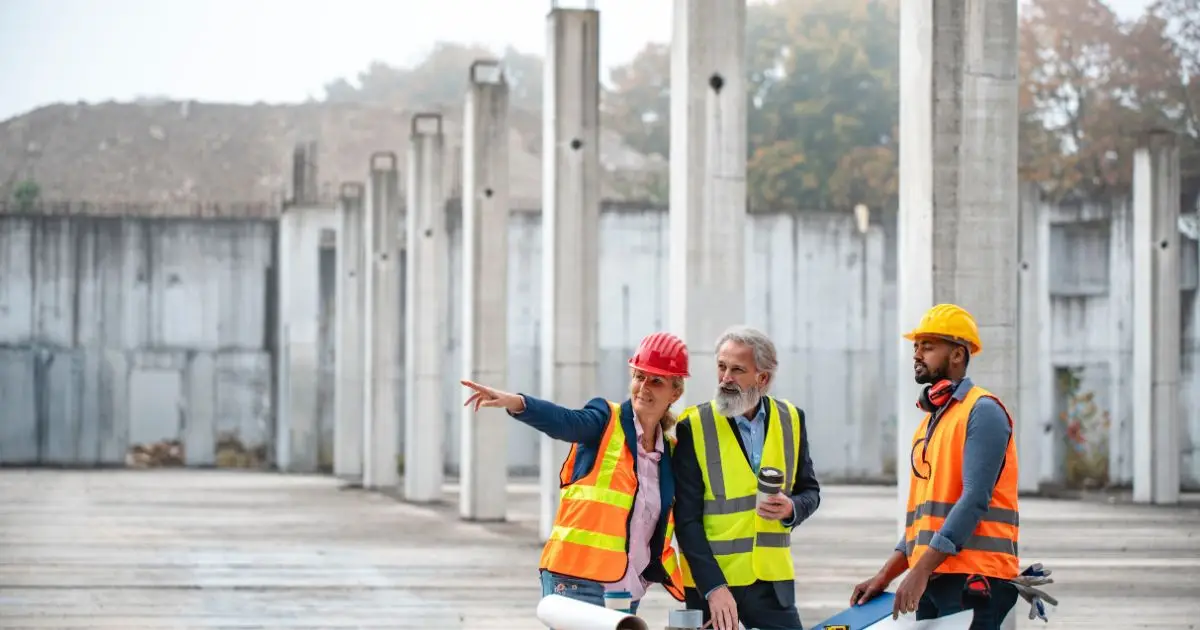In the UK construction industry, having a CSCS card is important. This card shows that you have the right training and skills to do your job safely and effectively on construction sites. Thus, whether you're starting your career or simply planning to be more advanced in the field, procuring a card becomes a very significant thing to do. It allows you to get a lot of job opportunities and build a very successful career.
By making everything understandable and breaking it down into important steps, the article simplifies the application processes regarding eligibility screening, test preparation, and submission of applications. Use the information in this article to step towards your first step in having a successful career in the construction sector. It shouldn’t be difficult for you to do so.
What is a CSCS Card and who needs it?
A CSCS card shows that a construction professional has undergone the necessary training and has the qualifications to complete a particular job at a construction site. The card is more than just a piece of identification. It's critical to the construction industry in the UK. It’s your ticket to getting construction jobs, making sure you’re following safety rules, and gaining trust with employers. There are different types of CSCS cards for different roles, whether you’re a labourer, skilled worker, manager, or professional.
- A Labourer Card is for those individuals who carry out general tasks at your site.
- Skilled Worker Card is for people having particular trade skills like electricians or plumbers.
- A Manager Card, on the other hand, is meant for those who supervise construction projects.
Possessing a CSCS card makes someone a great company asset towards any construction project. It provides proof to employers of the individual’s qualifications and safety awareness. Whether you’re new to the field or experienced, getting the right card is a vital step to advancing your career. Further, so many construction companies are now making CSCS cards a requirement for employment. That makes it a must-have qualification for job seekers.
1. Check your qualifications for obtaining a CSCS card
Before applying for a CSCS card, you have to ensure that you meet and satisfy the requirements for eligibility that differ from one application to another. In general, you need to show that you have the necessary qualifications or experience for that job. For example, an NVQ, apprenticeship, or similar qualification. If you're just starting and don’t have all the necessary qualifications, you might be able to apply for a provisional card. You can do this while working on meeting the full requirements.
- Confirm which card type matches your qualifications and role: Make sure the card you’re applying for is the right one based on the job you want to do and your qualifications.
- Collect proof of training: Gather your training documents, such as NVQ certificates or any other relevant credentials, to show that you have the necessary skills.
- Research provisional cards: If you’re new to the industry and still working on your qualifications, look into provisional cards. They enable you to start work before completing your qualifications.
- Understand the requirements: Before you even start applying for your CSCS card, you are required to know if you qualify for it. Understanding the requirements and experience that go into getting the card will prevent any mistake or delay involved in acquiring it.
It’s also a good idea to gather all the necessary documents in advance, such as certificates or proof of training, so you're ready when it’s time to apply. If you're not sure about your qualifications, don’t hesitate to reach out to career advisors or training providers. They can help clarify what you need. Finally, make sure to go through the official CSCS guidelines. It will help you know the card type that's synonymous with your skills and experience.
2. Schedule the CSCS Exam and get prepared for it
The next big task you should book is the CITB Health, Safety, and Environment Test. This test is required for most CSCS cards and is important because it assesses your knowledge of health and safety practises on construction sites. By taking the test, you'll show that you understand how to help create a safe work environment. You can very simply book a test either online or by phone for convenience and easy scheduling.
Here are some tips on preparing for your CITB Health:
- Safety and Environment Test: Visit the official site. Get a date for your test at the CITB website. These tools will prepare you for and practise the actual examination.
- Learn the facts about the testing fee: This will be around £22.50 for the test, so you need to plan your savings accordingly because this is the year 2025.
Preparing for the health and safety tests that the CITB requires will involve scheduling your test through official resources such as the CITB website. Prepare well for the first attempt at passing the assessment, focusing on areas such as health and safety regulations, hazard identification, and best practises in construction. Mock tests can give you more confidence and a fair picture of what to expect. Also, provisions for learning periods dedicated to using the official CITB study resources go a long way in increasing the chances of success.
3. Send in your application by phone or online
After you have completed your CITB test, you can now apply for your CSCS Card. This application is done through the CSCS website or even on a telephone call. Make sure every necessary document is ready to "upload" or "share" as part of the application process. This includes your own test results as well as any other qualifications. Verify everything at the final stage to avoid delaying or messing up your application. This will help make the process go more smoothly.
- Visit the official CSCS website or call their hotline: Start your application by either going online or calling the CSCS customer service.
- Check your documents: Ensure all documents are correct and complete before submitting them.
- Learn about application fees and their processing: Fees and processing times often vary on demand. Plan accordingly.
To avoid unnecessary delays, make sure to submit your CSCS card application properly the first time. Should you not understand any part of the process, contact CSCS customer service, who may guide you through it. This step is essential to ensuring you receive your card without any complications. It’s also a good idea to keep a record of your application details and payment confirmation. This will be helpful if any issues come up later.
4. Receive your card after paying the application fee
After you have completed your CITB test, you can now apply for your CSCS Card. This application is done through the CSCS website or even on a telephone call. Make sure every necessary document is ready to "upload" or "share" as part of the application process. This includes your own test results as well as any other qualifications.
- Track application status: You can check the status of your application whenever you want through your CSCS portal.
- Make sure your payment details are secure and correct: Confirm that your payment information is correct and that you entered it using a secure method for the payment.
- Keep your card safe: Once you have received your card, store it in a secured location. You may also want to take a digital backup copy of your card.
Receiving your CSCS card is the first major step into the world of many new possibilities within the construction sector. With the card in hand, you can work on construction sites and get involved with projects comfortably. The card also shows that you are committed to following high safety standards and maintaining the skills needed for your job. With your card, you’ll be ready to take your career to the next level and pursue more advanced roles in the industry.
Professional advice for a successful CSCS card application
Experts suggest that you plan your CSCS card journey to avoid unnecessary delays. It’s important to understand the qualifications you need and take the time to prepare for the test. Every step along the way matters, so staying organised and informed will help you have a smooth application process. Additionally, keeping track of important deadlines and ensuring you have all the required documents ready can prevent any last-minute problems.
- Create a checklist of requirements: Make a list of everything you need, including documents and test dates, so nothing gets missed.
- Schedule your test and application submission in advance: Plan and book your test and application submission well before any deadlines.
- Take note of all communications with CSCS: Store for safekeeping any emails or messages received from CSCS for later reference.
Here are some of the pro tips to successfully manoeuvre yourself through the process of getting the CSCS card. Such an approach will comfortably allow you to pass through the process quickly. This gives you the best opportunities to reach your career goals. Most importantly, planning can help you secure the best career opportunities leading to high-paying jobs in the construction sector. Update qualifications as the industry shifts and grows demands. Hence, the continuous card updating to keep your qualifications relevant and competitive in the field.
Straight into Career Construction Now
Getting a CSCS card shouldn't be all that tough. If you break it down into four simple steps: checking your eligibility, preparing for the test, applying, paying, and handling any issues—you can confidently move forward in your construction career. The card is not just a certification; it’s like a passport that opens the door to safer work environments and countless opportunities in the industry.
For additional information on training or qualifications, I would suggest checking the College of Contract Management. Their programmes would help you get to where you want to be in your career in construction. So do not waste time but start your journey today and open all your potential! From flexible learning to industry-recognised certifications, you can customise your education to work for you. Enrolling will, therefore, equip you with insights that make you competitive in the job market.





